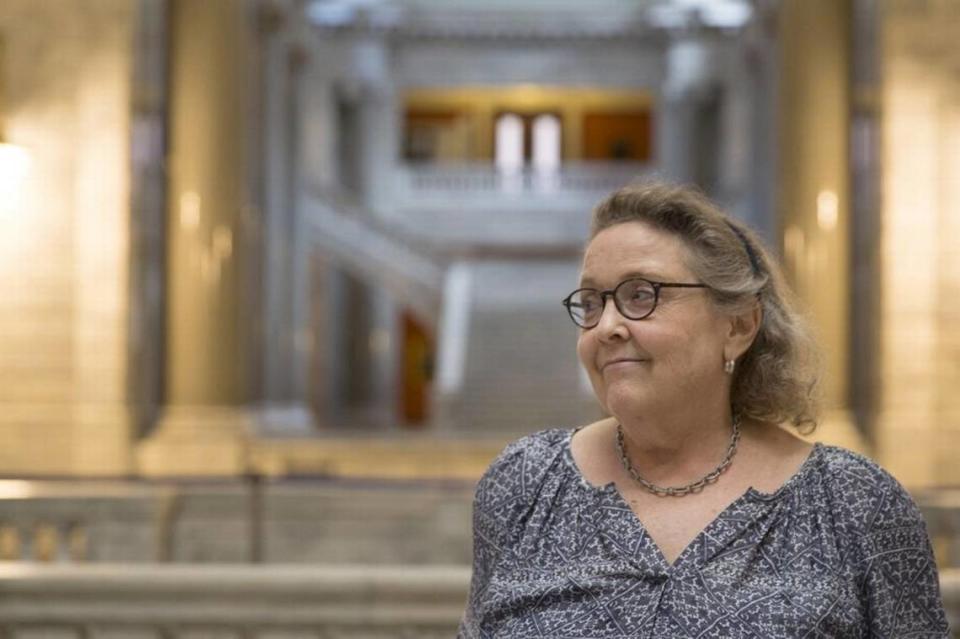As Attorney General, Daniel Cameron hates transparency. As governor, he’d be even worse. | Opinion
What would a Daniel Cameron gubernatorial administration look like through the lens of Kentucky’s open government laws?
In a word: opaque.
The proof is visible everywhere. Since taking office as attorney general in 2019, Cameron has left a clear track record of disdain for the public’s interest in free and open examination of public records and the formation of public policy at public meetings.
In a recent example, Cameron’s staff was back in Franklin Circuit Court for a March 29 status conference on undisclosed public records in an open records case — American Oversight v Office of the Attorney General — initiated by the nonpartisan nonprofit watchdog in January 2021 after Cameron largely denied its request and affirmed his office’s actions on appeal.
The court was unconvinced, resolving the original open records lawsuit against Cameron in July 2022.
In June 2020, American Oversight submitted an open records request to the Office of the Attorney General for records related to the activities of Cameron’s Kentucky Absentee Ballot Integrity Task Force, including records related to its formation, the conduct of its business, agendas, and meeting minutes.
Cameron produced a single agenda in response to American Oversight’s request, denying access to the remaining handful of documents located after a cursory search. American Oversight appealed the denial to the Attorney General and lost.
On appeal, the court reversed the self-affirming open records decision in which Cameron applauded himself for refusing to produce nonexempt public records of his public task force. The court rejected Cameron’s strained invocation of the permanent exception for criminal litigation records of Commonwealth’s and County Attorneys to shield the requested task force records. Additionally, the court rejected Cameron’s attempt to expand the scope of the preliminary documents exceptions — as construed in Courier Journal v Jones to justify nondisclosure of the governor’s daily appointment ledger — to the widely publicized task force’s meeting notices and agenda.
Perhaps most importantly, the court seriously questioned the adequacy of the attorney general’s search for records responsive to American Oversight’s request, declaring that open records requestors: “cannot be expected to know all relevant search terms or places where the agency may file such records. To place that burden on the requestor is to invite the agency to hide relevant records that are obscurely labeled or stored in deep recesses of its bureaucratic records system. It is the duty of the agency to conduct and open, thorough, and good faith search of its records in response to an Open Records request.”
It was Cameron’s failure to conduct a good faith search for responsive records that necessitated a series of hearings in the Franklin Circuit Court aimed at compelling him to discharge his first and most fundamental duty under the open records law.
Nothing communicates contempt for the open records law like Kentucky’s chief law officer, chief law enforcement officer, and administrative adjudicator of open records appeals thumbing his official nose at court orders directing his own agency to conduct “an open, thorough, and good faith search of its records in response to an Open Records request.”
A legacy of secrecy
The now depleted legal staff that Cameron inherited from former Governor Matt Bevin — widely known for combating the public’s right to know in the courts — provide additional proof of his administration’s disdain for the principles of open government, continuing to erect formidable barriers to access.
Who can forget the Bevin/Cameron legal team’s unsuccessful efforts to prevent disclosure of Bevin’s wildly ill-conceived public pension reform plan?
And it’s unlikely we will ever know the fate of executive pardon records removed by Bevin attorneys a la Mar-a-Lago and returned — only in part — after the attorneys were sued by the current governor’s Finance and Administration Cabinet.
These were the advisors who shaped Daniel Cameron’s anti-open government agenda.
Expanding government secrecy
Whether it was outrages to open government committed in the name of “strict” statutory construction or reliance on aberrant legal authority, Daniel Cameron is to thank for, among other things:
▪ vastly expanding government secrecy in conducting the public’s business by declaring that public officials/employees’ communications about the public’s business on their personal devices and accounts are not public records;
▪ perpetuating law enforcement agencies’ erroneous belief that all records in an open criminal investigation are excluded from public inspection; and
▪ eviscerating open meetings laws with such finality that we dare not provide greater detail.
The Kentucky Open Government Coalition documented these outrages, to date, in an April 2022 op-ed.
Even greater outrages lay ahead.
It has been a slow and painful “near-death by a thousand cuts” in Cameron’s open records and meetings dispute “resolution” — resolution that for decades proceeded from clear statements of legislative policy and judicial interpretation favoring public access.
“Secrecy,” Bill Moyers reminds us, “is the freedom tyrants dream of.”
The open government picture that emerges in Attorney General Daniel Cameron’s administration is dark. There is little reason to expect dramatic change if he attains the office he once criticized former attorneys general for seeking.
If elected governor, Daniel Cameron’s dream will likely become Kentucky’s nightmare.

Amye Bensenhaver is a retired assistant attorney general who authored open records and open meetings decisions in that office for 25 years. She is co-founder and co-director of the Kentucky Open Government Coalition along with Jennifer P. Brown, former editor of the Kentucky New Era and currently Hoptown Chronicle editor.

 Yahoo Movies
Yahoo Movies 
